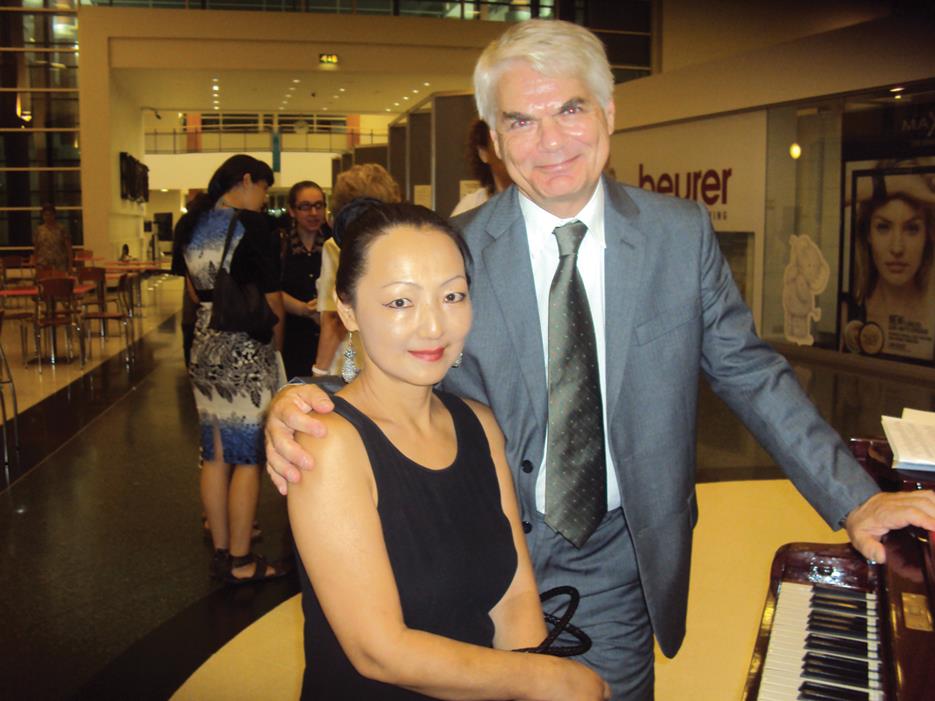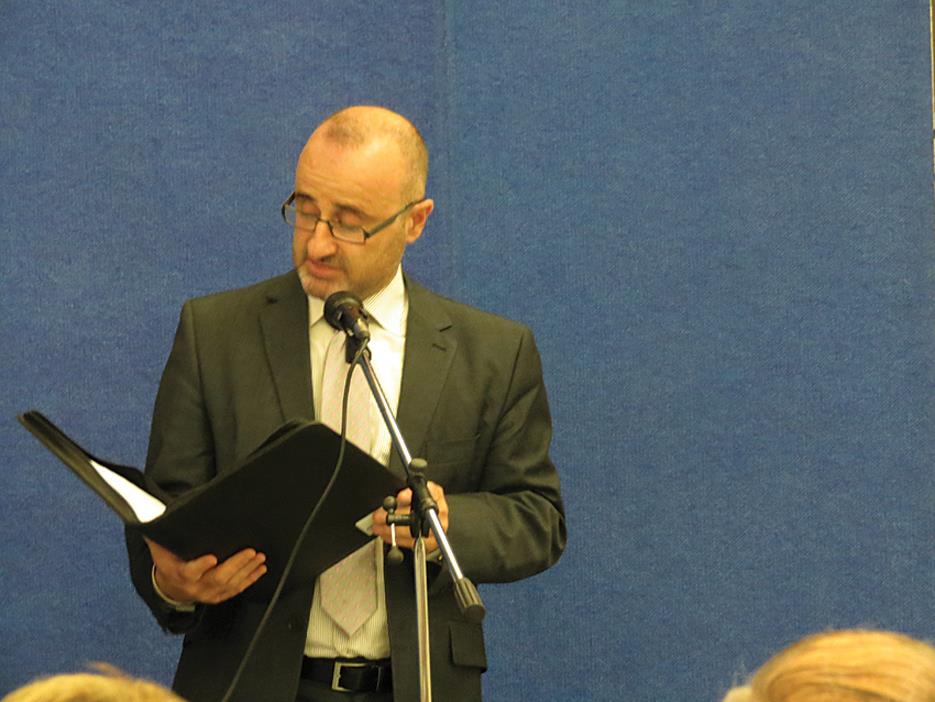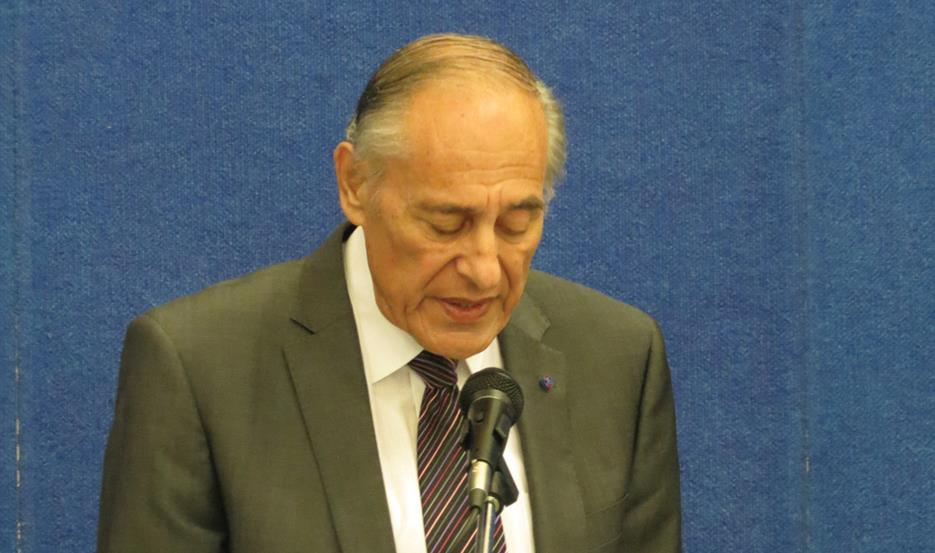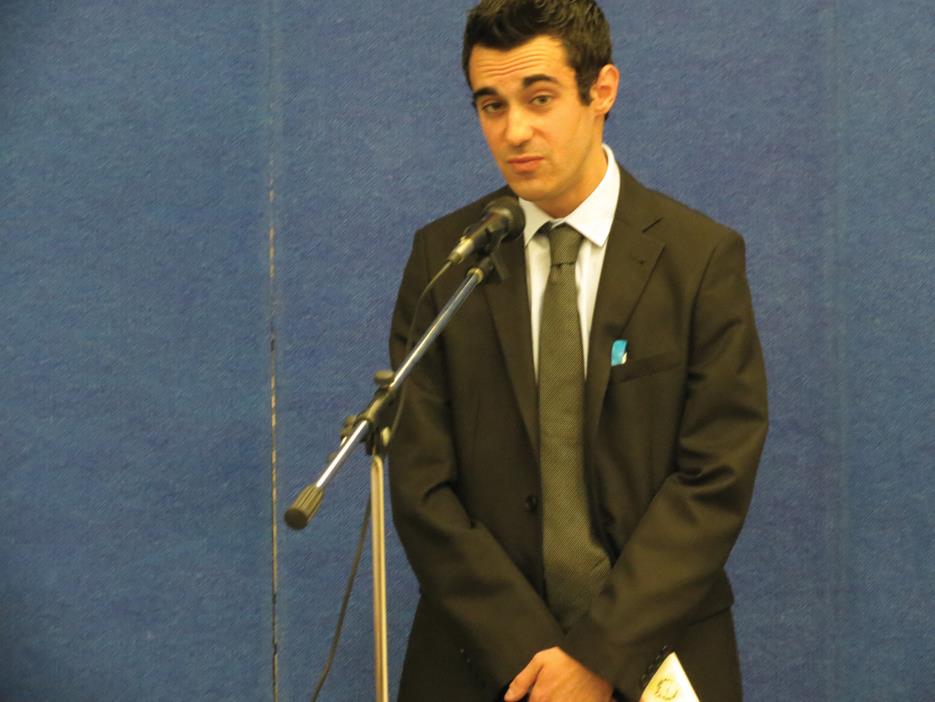Lucilla MacLaren Spillane writes beautiful poetry. This is not surprising as her father was Hamish MacLaren one of the most important Scottish poets of the post First World War era. I've read them all, in her book Another Seeing and other poems and I have my favourites. Her husband Dr Martin Spillane, an academic with a prestigious career teaching Pedagogy of Education in some of the top world universities, organized a Literary Evening at Mater Dei for the Malta launch of the book held in support of the Caritas Malta Epilepsy Association. The President of Malta and Mr Preca attended, much to the delight and appreciation of the poetess, organizers and all those present. Moreover she made an excellent and relevant speech. She really is proving to be a star. Apart from the poetess and her husband there were other stars that evening. First of all the Ghaqda Poeti Maltin who not only translated the poems into Maltese so beautifully but also read some of them in both English and Maltese.
Then there is the dedicated heart surgeon Mr Alexander Manché who played compositions by Ennio Morricone, Erik Satie and Dave Brubeck on the baby grand piano which was a gift from the family of another doctor. It had been offered to Mr Manché 'but since I already have one I asked them to donate it to the hospital', he told me.
Another star of the evening was without doubt the printers and one of the sponsors, Palmyra who printed the programme on beautiful paper for a start.

* * *
Mr Salv Sammut Secretary of the Maltese Poets Association told me that next year the Association will celebrate its 40th anniversary. It is a very active organization of about 100 members and has its own magazine and organizes competitions as well as events. It's President is Charles Magro who was present and introduced some of the poets who translated the poems and read some of them that evening.
The historian Dr Simon Mercieca then introduced the poetess. He was the first to read The Widow, a very moving poem, in a copy of her thesis. He gave an excellent speech. "I call her a Poetess for one sole reason. I was brought up on poems written by men in the modern genre and I have to confess that they made me hate poetry. But allow me to explain. Indeed I began hating poetry not because it was written by men, but because of the expression and the genre used. We must acknowledge that the 20th century post-modernism has destroyed lyrical poetry. Thanks to the determination of this lady, together with the good work being done by those poets who are returning to rhythmic verse, I am falling in love with poetry once again."

* * *
In her short but clearly delivered address the poetess Lucilla Maclaren Spillane briefly described how she came to write poetry. Her father Hamish Maclaren was a distinguished Scottish poet and when she was small one day, out of curiosity, she went up to the little room where he wrote his poetry. "I wanted to know what made the clacketty-noise I'd heard and I was going to find out. I was thrown out and told not to go there again, but I had seen and heard the typewriter." Although she suffered from epilepsy early in life she had a great advantage: her mother taught her to read at four. She was also exposed to her father's meetings of writers and poets. "I'd curl up with a book on a window-seat; developed an insatiable thirst for reading and exhausted all the children's classics in my possession." She was born with a gift and told us that some of her poems were written in the Fens. "I revised 'A Winter's Night' and it was accepted by The Cambridge Evening News. My father was pleased and said: "It is the best thing you've ever written." I was on cloud nine. It was high praise from a man who would take established writers apart". Years later, Lucilla went on, it dawned on her that it didn't have to be good to be published. Poetry submitted to a poetry group to which she belonged, degenerated and she refused to submit to sub-standard publications.

Her tertiary education came late - not until 1995 in fact. Encouraged by her second husband Martin Spillane she enrolled with Western Illinois University and began working on a degree in 1998, in the meantime continuing to write some of her best poems. They moved to Florida where she finished her BA and won a scholarship to California State University. They moved to Malta in 2004 but she was allowed to submit work online and in 2011 they flew to California for her degree ceremony. Her MA thesis was on AE Houseman's poetry "and went against accepted thinking." She gave the Houseman Society a copy and they asked for a book. She collected all the poems for Another Seeing for which they gave her a terrific review. All this between hospital visits and open heart surgery. "It is my earnest wish to help restore poetry to its former glory," she told us.
* * *

Matthew Attard the newly appointed Secretary of Caritas Malta Epilepsy Association who suffers from epilepsy also addressed the audience. "Literature touches and helps heal the mind in a way which no pill, tablets, scalpel or needle can. The Epilepsy Association aims to promote and maintain awareness and education towards breaking the barriers and fear caused by stigmatization. I build bridges for people with epilepsy. What does the Epilepsy Association do? It provides in-service education of teachers and learning support assistants. It gives basic training courses to the police force of how to recognize the signs of a seizure and when possible apply first aid," he explained.
There were drinks and canapés afterwards and Lucilla was signing books too. A splendid evening of beautiful poetry and music.
* * *
he exhibition of Lucilla's poetry is still open near Agenda Bookshop at Mater Dei. The original Another Seeing and other poems and the Maltese translated edition Lemmha ohra u poeziji ohrajn is being sold for Euros 12, both books for one price at Agenda Bookshop Mater Dei. Euros 6 from each sale goes to the Caritas Malta Epilepsy Association.